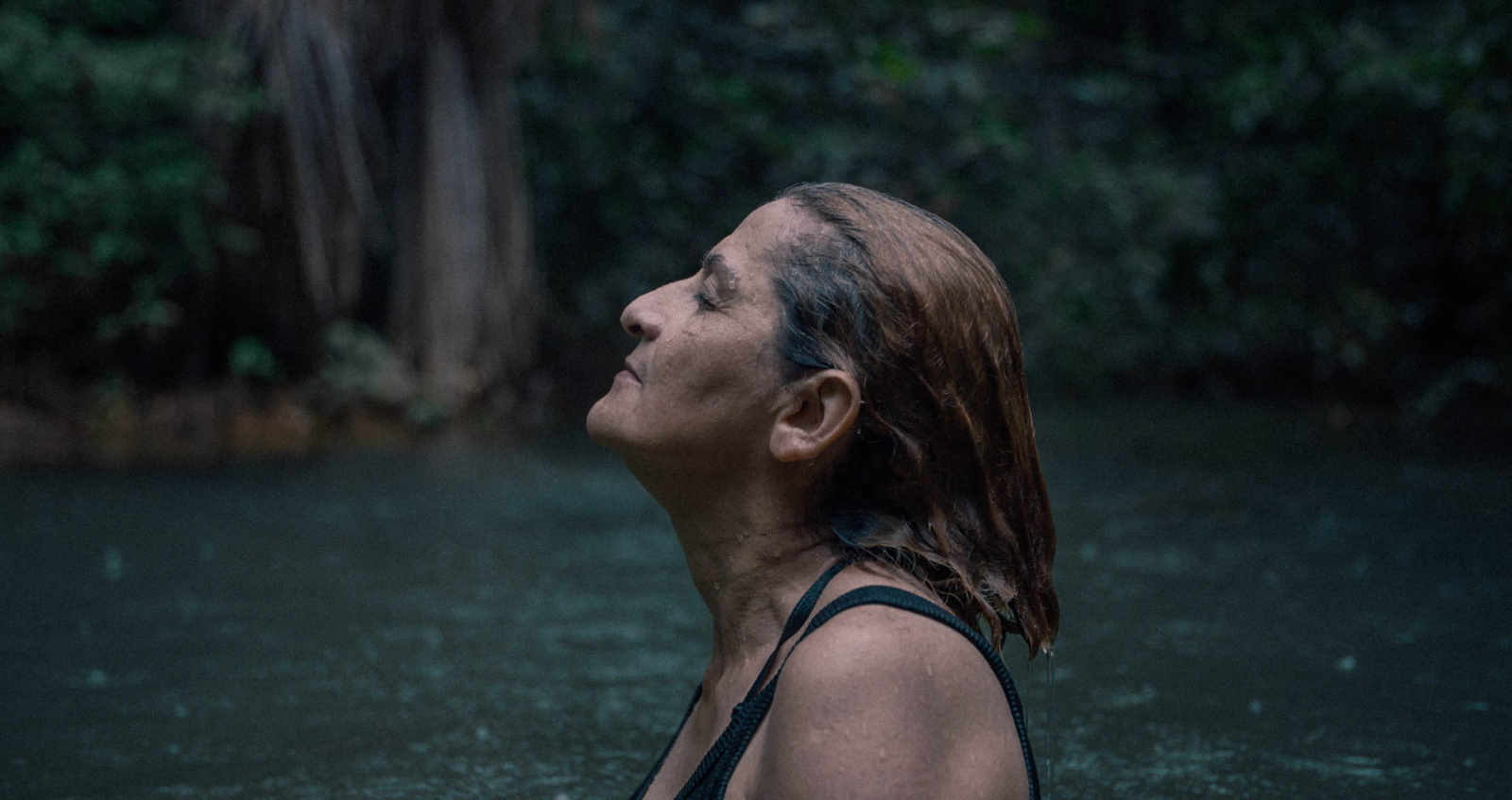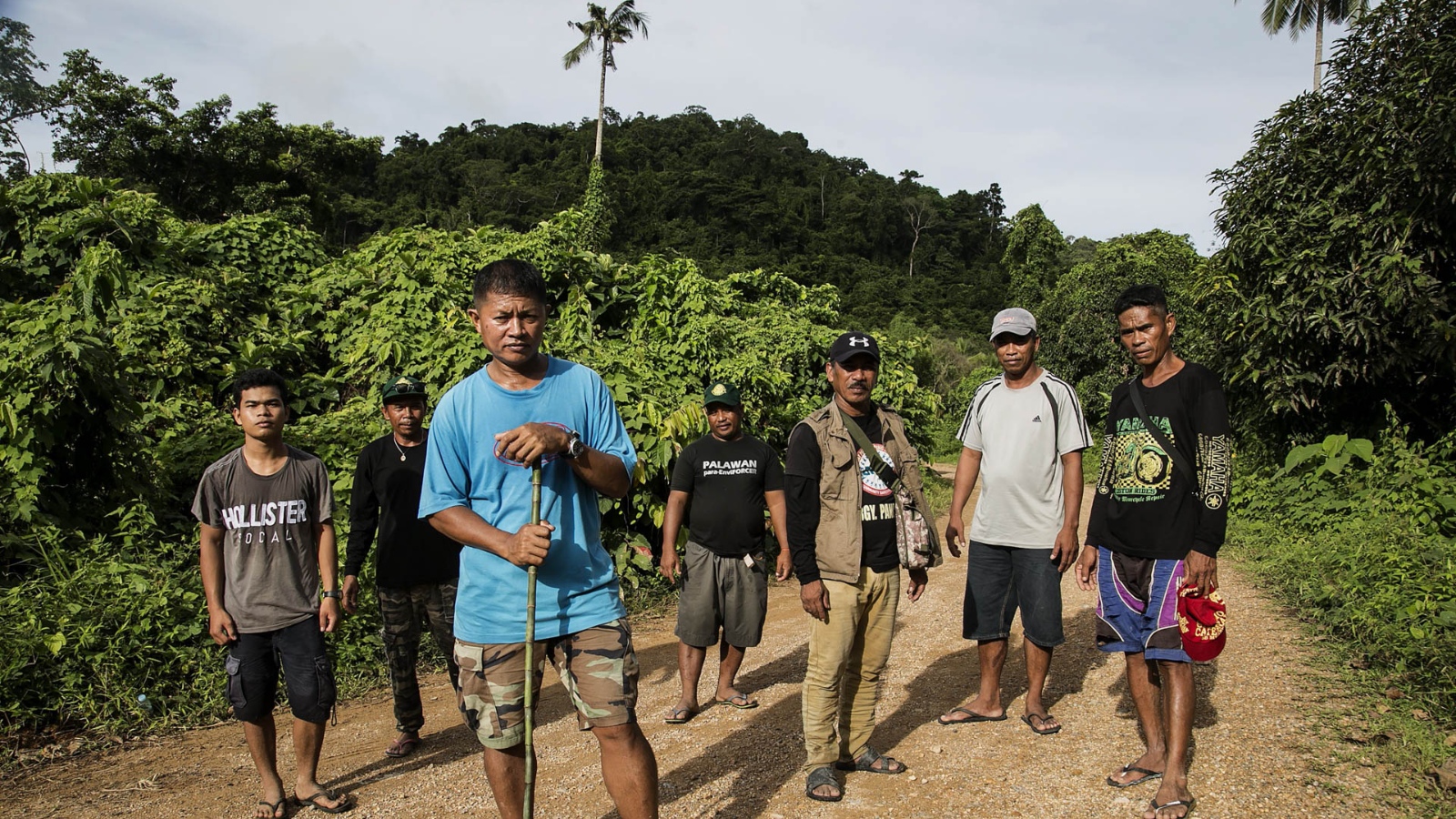This week, the Mountainfilm Festival — an annual celebration of the indomitable spirit of environmental activists and outdoor adventurers — kicked off in Telluride, Colorado. The festival will be showing more than 120 feature-length documentaries and shorts, which you can stream from home, for a fee, throughout next week. The films will transport you from the Great Barrier Reef of Australia to the steppes of Mongolia, from cauldron-like volcanoes to ancient, disappearing glaciers.
As the media sponsor for this year’s festival, Grist reviewed four new feature-length documentaries. These movies explore a pivotal moment in the U.S. climate movement, the seizure of Indigenous land in the Amazon, a quest to reach the North Pole as warming temperatures destabilize the region, and the plight of people defending their land in one of the riskiest countries in the world. Some were uplifting, some were gripping, and some left us craving a deeper examination of the issues they touched on.
To The End

If there’s one thing that Rachel Lears’ new documentary gets spot on, it’s the dueling despair and optimism that characterize the U.S. climate movement. “The big thing that we’re up against … is cynicism,” Alexandra Rojas, executive director of the political action committee Justice Democrats, says in the film as she addresses a room full of tired-looking volunteers and coworkers. “We have to be hopeful, we have to keep coming.”
To the End follows Rojas, Democratic Representative Alexandria Ocasio-Cortez of New York, policy expert Rhiana Gunn-Wright, and Sunrise Movement co-founder Varshini Prakash in their valiant, and often frustrated, attempts to advance transformative climate policy. The documentary begins the late Trump era with the advent of the “Green New Deal” — a far-reaching vision to shift the U.S. economy away from fossil fuels while at the same time creating jobs and advancing social justice — and concludes at the beginning of the Biden administration.
As the years wear on, it becomes clear just how hard it can be to keep cynicism at bay. Roadblocks abound: Joe Manchin, a Democrat from West Virginia, blocks the passage of critical climate policy at the federal level. Climate-focused candidates lose congressional races to their far-right opponents.
At one point, Prakash simply says, “I feel like crying a lot,” although she vows to keep the movement going.
To the End covers a lot of ground, allowing only a somewhat shallow focus on any of the protagonists’ lives or their ideas. Veteran climate advocates may already be familiar with most of the concepts in the film, but it is sure to elicit an emotional response from those who have been fighting tooth and nail for climate action — and coming up hard against the weight of the fossil fuel industry, a broken political system, and the status quo.
— Joseph Winters
The Territory

After working on other peoples’ land his whole life, Sérgio, a 49-year-old Brazilian farm worker, says he just wants something for himself. “When you feel the suffering around you, you begin to realize what needs to change,” says Sérgio as he sweats and works under the watchful eye of a man on horseback. “The Uru-eu-wau-wau.” Referring to the Indigenous Uru-eu-wau-wau, Sérgio believes the only way he can succeed is if the Uru-eu-wau-wau are removed from their traditional homelands. This perspective is what underscores the biggest problem with the new film The Territory, which offers an important look into the ongoing crisis for Indigenous people in the Amazon, but gives entirely too much space to the settler perspective.
That focus on settlers is especially troubling as the stakes of their invasion to seize land ratchet up. When a young Uru-eu-wau-wau leader is murdered by unknown assassins, the film does little to place the killing in the context of decades, if not centuries, of escalating violence against Indigenous land defenders in Brazil. Only briefly do the filmmakers include reference to President Jair Bolsonaro’s government, which has ruthlessly pushed for development of Indigenous land, and even then, it’s in passing.
Sérgio, a prominent character in the film, eventually becomes the president of an association attempting to secure legal title to Indigenous land, but his story arc is balanced by Martins, a settler who refuses to wait for government permission. This, he says as he hacks and burns his way through the forest, is how every road in the country was built.
We also meet Bitaté, a young Uru-eu-wau-wau man, who becomes a leader of his community and organizes defenses of their land, but for most of the documentary, the main characters are the people he is trying to stop.
Toward the end of the movie, the Uru-eu-wau-wau pick up cameras and begin to document their own story as they arrest 30 land invaders. Brazilian media coverage of these arrests leads to politicians withdrawing support for Sérgio’s association — however, because we see it from his perspective it becomes a somber moment, rather than the triumph it surely was from the Uru-eu-wau-wau point of view.
The film also never explains what happens to those arrested. Do they face justice in the form of criminal charges or fines? Will they simply return to the forest and resume their invasion when the cameras aren’t there? As legal and illegal land invaders redouble their efforts throughout the Amazon, audiences are left with a false sense of hope that video footage could be enough to combat generations of state-sponsored violence, abuse, and land theft.
— Joseph Lee
Exposure
There is no land under the North Pole. Instead, there is an ever-shifting, ever-churning sheet of sea ice — one that, as Holly Morris’ new documentary reminds us, is becoming even weaker and more mercurial due to climate change. Nowadays, every human-powered expedition to the pole could be its last; before long, the ice will become too thin.
Chronicling Earth’s changing climate is one component of Exposure; tracking its changing social climate is another. In the mid-2010s, British adventurer and outdoor leader Felicity Aston put out a call for women — “no experience necessary” — to join an expedition to the North Pole. Aston sought, in particular, a group that was equal parts Arab and European. The result is a team of 11 women whose backgrounds are as varied as their outdoor experience: A polar bear biologist from Sweden — who carries a rifle, in case bears get too close — rubs shoulders with a member of the royal family of Qatar.
Once the expedition begins, differences fall away. Beyond occasional prayers performed on Arctic ice and a discussion of Islamic polygamous traditions, there is little to mark the cultural diversity of the team. Instead, the struggles are distinctly universal: frostbite suffered at -38 degrees Fahrenheit, a blizzard during training that collapses a tent, the fear of coming so close to the North Pole only to have to abandon the mission. Moments of conflict between the women appear and then fade away, like the Arctic ice floes; one gets the sense that Morris wants to counteract the view, espoused by the Omani outdoor leader Anisa at the beginning of the film, that women “have a lot more drama.”
The result is an uplifting film about female courage and perseverance, but one that misses a deeper discussion about the warming planet, the role of women in Islam, or sexism. At one point, the women reach a rift in the sea ice that exposes open water, an unwelcome gift of global warming. They skirt around it, avoiding the ice-cold water — and the most uncomfortable topics.
— Shannon Osaka
Delikado
Delikado opens with extraordinary footage of “para-enforcers” — citizens attempting to uphold conservation laws — as they slip through the jungle and surprise illegal loggers, confiscating their chainsaws. In Palawan, a lush, tropical archipelago in the Philippines, these land defenders are risking their lives to preserve the islands’ old-growth rainforests. Delikado (Tagalog for dangerous) offers a rare glimpse into their experiences and the deadly threats that they face.
The film follows Bobby, an attorney whose NGO cracks down on illegal logging and fishing while the government turns a blind eye, Tata, a former logger who leads daring missions for the organization, and Nieves, a local mayor trying to stand up against unchecked development.
After its dramatic opening, the film zooms out to reveal the larger issues at play, including the razing of the forest to make way for palm plantations and tourist resorts. Standing between one of the richest ecosystems on Earth and decimation are regular people showing astonishing bravery in the face of harassment, intimidation, and violence. In 2020, the Philippines ranked third in the world for the number of land defenders killed.
Throughout the film, the scale of the destruction and who exactly is responsible remains vague; the script is light on statistics and exposition, and instead follows the personal narratives of the land defenders. In doing so, Delikado thrusts you into their world and immerses you in their weariness and anger. Although the film doesn’t provide any false hope that things will turn out OK, it underscores the defenders’ comradery, their deep commitment to preserving the land for future generations, and, most of all, their remarkable courage. After a friend is shot and killed, Tata asks, with tears in his eyes: “Who else will do this? No one else, right? We are the only ones.”
— Julia Kane



